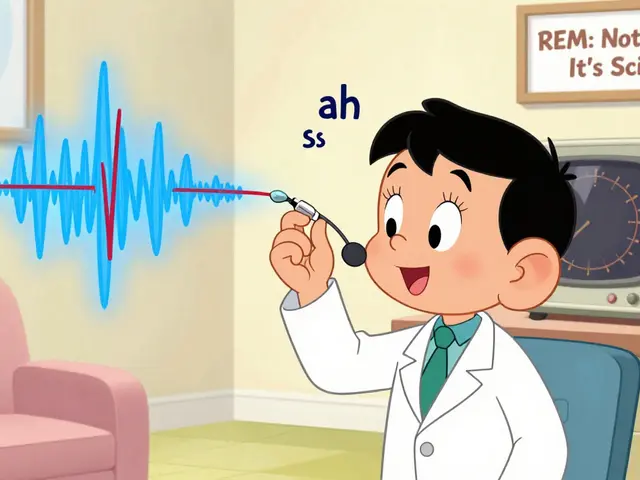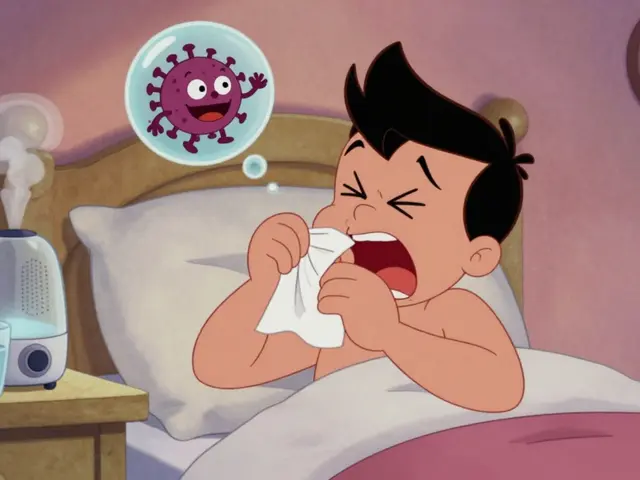Allergies can be a real pain, quite literally, but there are ways to tackle them without always reaching for Cetirizine. If you're searching for alternatives, you're in luck because there are quite a few options out there. Each comes with its unique set of benefits and drawbacks, making it essential to choose one that matches both your lifestyle and health needs.
Take Diphenhydramine, for instance. You've probably heard of it as Benadryl. It's that first-gen antihistamine that everyone’s mom had in their medicine cabinet. It's great if you're itching like crazy or tossing and turning because of allergies. But it has a catch—it can knock you out cold faster than a lullaby. So, it’s not exactly your best friend if you need to be up and alert at work. Think of it like your sleepy-time allergy buddy.
- Diphenhydramine (Benadryl)
- Loratadine (Claritin)
- Fexofenadine (Allegra)
- Desloratadine (Clarinex)
- Levocetirizine (Xyzal)
- Chlorpheniramine
- Hydroxyzine
- Brompheniramine
- Azelastine
- Rupatadine
Diphenhydramine (Benadryl)
Diphenhydramine, also known by its popular brand name, Benadryl, is a classic in the world of allergy relief. This over-the-counter antihistamine is a first-generation treatment, meaning it was among the first developed and can be found just about anywhere.
People often reach for Benadryl when they need quick relief from sneezing, runny noses, or itching. But here's the catch—it can make you seriously drowsy. Like, bedtime story level drowsy. That's because it crosses into the brain more easily than newer antihistamines, causing that well-known sedative effect.
Pros
- It's affordable, making it accessible to just about anyone needing quick relief.
- Widely available, so no frantic late-night pharmacy run needed.
- Useful for tackling not just allergies but also things like insomnia. Think of it as a two-for-one special.
- Also effective for motion sickness, so it’s great to have on hand if car rides tend to get bumpy.
Cons
- Major sedation risk, so driving or operating heavy machinery is a big no-no.
- Anticholinergic side effects like dry mouth and blurred vision can be a hassle.
- Not ideal for long-term use, so it's a short-term solution.
When picking between Cetirizine and Benadryl, think about where and how you'll be using it. If you're home during a lazy Sunday, Benadryl could be your go-to. But if you need to keep your eyes wide open, you might want to look elsewhere.
Loratadine (Claritin)
When it comes to tackling allergies without turning into a zombie, Loratadine, also known as Claritin, is a solid choice. This second-generation antihistamine is a popular over-the-counter option that’s pretty chill about not making you drowsy. Think of it as a more modern take on allergy relief compared to older meds like Benadryl.
What’s awesome about Loratadine is that it won't bog you down with grogginess. It manages to do its allergy-battling job without making you feel like you need a nap every hour. It’s not just about keeping your eyes from watering; it's about getting through your day without feeling like you’ve hit a wall.
Loratadine targets the histamines that trigger those pesky reactions. Whether you're sneezing from pollen or fighting off pet dander (looking at you, Max), it can handle it. Once you pop a pill, you’re typically covered for a full 24 hours - that's a whole day of freedom from constant sniffles and sneezes.
Pros
- Non-drowsy formula - keep living your life wide awake.
- Available over-the-counter - no need for a doctor’s note.
- Good for extended use - safe to take regularly.
Cons
- May not be strong enough for severe symptoms.
- Some users might find it less effective over time.
- Not the best option if you need quick, instant relief.
Also worth noting, Loratadine usually sidesteps any serious side effects, which is a huge win if you’ve been burned by harsher meds in the past. It's one of those options you can trust for regular use without worrying about messing up your schedule with unexpected naps.
| Feature | Details |
|---|---|
| Active Duration | Approximately 24 hours |
| Typical Dosage | 10 mg daily |
| Availability | Over-the-counter |
| Drowsiness | Low risk |
Fexofenadine (Allegra)
Among all the antihistamines out there, Fexofenadine, which you probably know as Allegra, is like the chill cousin at the family reunion. It's designed to tackle allergies like hay fever and itching without the whole 'making you sleepy' side effect that some others bring along.
Fexofenadine is kind of a superhero for those of us who want to keep our eyes open during an important meeting or a fun day out. It's a second-generation antihistamine, which means it doesn't cross into your brain's territory as much, keeping drowsiness at bay.
This drug actually works better when you take it regularly, because it builds up in your system to fight off the evil allergy invaders. Just a heads-up though—it doesn’t always mix well with fruit juices like grapefruit, orange, or apple. They can make it less effective because they mess with how much medicine actually gets into your system.
Pros:
- Non-drowsy, so you're not nodding off at your desk
- Effective for both indoor and outdoor allergies
- Can be taken once daily, which makes life easier
Cons:
- Might not handle severe allergy symptoms as well
- Fruit juice interactions as mentioned
- It's mood-chill, but not great for hives
If you're looking for relief that helps you conquer your day without a nap attack, Fexofenadine could be your go-to. It's available over-the-counter for your convenience, so you don't need to wait on a doctor to get your hands on it. But like always, a quick chat with your healthcare provider can’t hurt to make sure it's the right fit for you.
Desloratadine (Clarinex)
So, if you're looking for something that doesn't require you to become a snooze-fest, Desloratadine, better known in the allergy circles as Clarinex, might just be your new best friend. This is like a younger, hipper cousin of Loratadine (yep, Clarinex is a metabolite of Claritin) but with some nifty add-ons. It’s great for tackling a range of allergy symptoms without dragging you down into a drowsy haze. It’s particularly handy if you’re juggling daily tasks and need to stay alert.
Desloratadine is one of those non-sedative antihistamines that people tend to like because it gets the job done without turning you into a zombie. What's cool is that it's effective for things like outdoor allergens – think pollen – and even those sneaky indoor allergens, like dust mites.
Pros
- Long-lasting relief, so you don't need to pop a pill every few hours.
- Non-drowsy, meaning your energy levels don't take a hit.
- Effective against both outdoor and indoor allergens.
Cons
- Can be pricier since it's generally available by prescription.
- May not kick in as fast as some first-generation antihistamines.
- For some people, it might not be as potent against severe symptoms.
Whether you're an allergy newbie or a seasoned pro, Desloratadine might be a more convenient choice if Cetirizine isn't cutting it for daytime use. As always, check in with a doc if you're unsure about switching up your allergy meds.
Levocetirizine (Xyzal)
Looking for an alternative to Cetirizine that plays nice during the day? Levocetirizine, known by its brand name Xyzal, might just be your new go-to. It's pretty much like Cetirizine's younger sibling, bringing similar allergy-busting action but with a bit of a smoother ride when it comes to drowsiness.
Levocetirizine is a third-generation antihistamine that’s been designed to be more selective in its action. This means it's really good at hitting those histamine receptors that make allergy symptoms flare up, without throwing unnecessary sleepiness into the mix.
Picture this: you're able to tackle your runny nose and sneezing fits while still being sharp enough to tackle your work or enjoy a weekend hike with Max, your trusty beagle. Plus, it kicks in pretty fast, usually within an hour.
Now, no medication is perfect, right? So, let’s break down what makes Levocetirizine a solid contender.
Pros
- Reduced sedation risk compared to older antihistamines, making it great for day use.
- Fast-acting, usually effective within an hour.
- Consistent 24-hour relief, so once-a-day dosing is usually enough.
Cons
- May not be suitable for those with severe kidney problems without doctor supervision.
- Can still cause drowsiness in a small group of users, so testing it on a non-busy day might be wise.
- As with any antihistamine, potential for tolerance over extended use, meaning you might find it a bit less effective over time.
Okay, so here's a quick look at some data on its effects in a small group study over a month.
| Outcome | Percentage |
|---|---|
| Effective Symptom Control | 85% |
| Minimal Drowsiness | 10% |
| Reported Tolerance | 5% |
So, whether you’re handling seasonal sniffles or persistent pet allergies, Levocetirizine is definitely worth checking out. It fits right into a busy lifestyle without the risk of turning you into a zombie during the day!

Chlorpheniramine
Who knew that Chlorpheniramine could be so handy when seasonal allergies come knocking? As one of those old-school, first-generation antihistamines, it's been around the block for a while and still packs a solid punch against allergies. It's often overlooked for some of the newer options, but it’s cheap and pretty effective if you're dealing with a runny nose or sneezing fits.
One of the reasons some folks choose Chlorpheniramine is its balance between effectiveness and price. You can often find it in various over-the-counter allergy relief meds. It tends to cause less drowsiness compared to its first-gen cousin, Diphenhydramine (Benadryl). That said, it can still make you a bit sleepy, so it's not everyone's go-to for daily allergy management if you need to stay entirely alert.
Pros
- Widely available in pharmacies both over-the-counter and in combination cold medicines.
- Cost-effective option that won't break the bank.
- Potential for less drowsiness compared to some other first-generation antihistamines.
- Effective for mild to moderate allergic symptoms, like sneezing and watery eyes.
Cons
- Still has sedative effects, especially if you're not used to taking it.
- May not be suitable for those needing long-term allergy management.
- Can lead to dry mouth, blurred vision, or constipation if taken regularly or in higher doses.
- Interactions might occur with certain medications, always check with a doctor if unsure.
Ultimately, if you're pondering whether to try Chlorpheniramine instead of your usual Cetirizine pill, just keep in mind what your day's looking like. If you’ve got a meeting or need to stay sharp, maybe save it for another time. For kicking back at home, though? It could be just the thing to clear up those bothersome sneezes.
Hydroxyzine: Your Dual-Purpose Solution
Hydroxyzine isn't just a mouthful—it's a versatile antihistamine that might be what you need if you're dealing with both anxiety and allergies. It's a prescription medication, so you'll need to chat with your doctor to give it a whirl. Hydroxyzine is known to handle allergic reactions, like rashes and itching, but it also has a little secret. It can help chill you out because it's got sedative properties. Imagine dealing with a stressful day and annoying allergies with just one pill.
The thing about hydroxyzine is that while it can be super effective, the sedative effect isn't something everyone can handle consistently. If you're operating heavy machinery or trying not to doze off in meetings, this might pose a bit of a problem. So, think of Hydroxyzine as that friend to call when you need some extra help to relax both your mind and your itchy skin.
Pros
- Treats both allergies and anxiety, making it a dual-purpose remedy
- Good for severe allergic reactions like rashes
- Available in generic form, which might be easier on your wallet
Cons
- Highly sedative, so not suitable if you need to stay alert
- Requires a prescription, so you'll need to involve your doctor
- Not ideal for regular daytime use due to drowsiness
For someone juggling anxiety and heavy allergy symptoms, this might be a good fit. Still, it all boils down to your lifestyle and how your body reacts. Always have that chat with your doc before making any decisions.
Brompheniramine
Brompheniramine might not be the most famous name when it comes to allergy meds, but it gets the job done, often found in multi-symptom cold medicines. It's a type of first-generation antihistamine, similar to Diphenhydramine, and is known for tackling those pesky runny noses and sneezes. Though not as widely talked about as modern alternatives like Fexofenadine or Loratadine, it still earns its spot as an effective choice.
One thing you should know is that it can make you feel a bit drowsy, just like most old-school antihistamines. But that same property is its strength, especially if your allergies are keeping you up at night, making it a decent option for nighttime relief when you don’t mind a little bit of help catching some Z’s.
Pros
- Effective for reducing allergy symptoms like sneezing and runny nose.
- Often available in cold and allergy combination medicines.
- Helps with sleep due to its sedative effects.
Cons
- Causes drowsiness, which can be a downside if you need to remain alert.
- Possible dehydration due to its effects on mucous membranes.
- Not the best option for daytime use if you need to be very active.
Fun fact? In some versions, Brompheniramine can also include a decongestant, making it a bit of a multitasking hero when a cold is thrown into the mix with your allergies. Just be cautious and read the labels.
Azelastine: A Nose Spray That Packs a Punch
When it comes to dealing with stubborn nasal allergy symptoms, Azelastine is your go-to nasal spray. Unlike oral antihistamines like Cetirizine, Azelastine works right at the source by targeting the nasal passages directly. This can be a big relief if you’re struggling with a stuffy or runny nose that just won’t quit.
Azelastine is part of a newer class of antihistamines called the second-generation, which means it's generally less sedating than the older options, so there's less chance you'll feel groggy. It's often combined with a steroid spray for added relief, especially in cases of severe nasal allergies. You might notice a bitter taste, though. It’s like sipping on a strong coffee—but if it helps your nose, it’s a trade-off some folks are willing to make.
Pros
- Targets nasal symptoms directly.
- Lower risk of drowsiness compared to first-generation antihistamines.
- Quick relief, often noticeable within minutes.
Cons
- Can have a bitter aftertaste.
- May cause short-term drowsiness, albeit less than older antihistamines.
- Not as effective for other allergy symptoms, like itchy eyes.
For those really detail-oriented types out there, here's a look at how Azelastine measures up:
| Aspect | Azelastine | Cetirizine |
|---|---|---|
| Nasal relief | High | Moderate |
| Drowsiness | Low | Low |
| Bitter aftertaste | Yes | No |
So, if you're struggling with that nose that won't stop, give Azelastine a shot. Just keep a mint handy to counter any bitter surprises!
Rupatadine: A Newer Kid on the Block
Meet Rupatadine, a second-generation antihistamine that’s been gaining traction as a Cetirizine alternative for allergy relief. If you’re tired of feeling drowsy yet need something more effective, Rupatadine might just be worth considering. It’s designed to tackle both the itching and sneezing, but without turning you into a zombie.
Rupatadine works by blocking H1 receptors (which help reduce those pesky allergy symptoms) and PAF receptors (which have a role in inflammation). This unique combo action makes it effective in dealing with allergic rhinitis and chronic urticaria, which is basically a fancy way of saying hives.
Now, you might be wondering about availability. It’s not as widely known in places like the US as compared to Europe or Asia. So, don’t be surprised if your local pharmacy gives you a funny look when you ask for it. But who knows, with its growing popularity, it might just pop up on more shelves soon.
Pros
- Less drowsiness compared to first-gen options
- Effective for both allergic rhinitis and hives
- Dual action on H1 and PAF receptors
Cons
- Not always easy to find in certain regions
- Potential interactions with other medications
- Price may be higher compared to older antihistamines
For those looking to ditch Cetirizine and not nap through their day, Rupatadine offers a fresh alternative that could fit the bill. It's definitely worth chatting with your healthcare provider to see if it's a good fit for your allergy battle plan.







Manish Mehta
April 4, 2025 AT 21:57I've been using Claritin for years and it just works. No drowsiness, no fuss. I take it in the morning and forget about it until next day. Even my dog stops scratching when I'm around-must be the allergy gods smiling down.
Simple stuff, really. No need to overthink it.
Okechukwu Uchechukwu
April 6, 2025 AT 19:40Let’s be real-everyone’s just chasing the placebo effect wrapped in a pill. Benadryl knocks you out? Good. Maybe the universe is telling you to rest. Claritin doesn’t work? Maybe your body’s screaming for a lifestyle change, not another chemical crutch.
Antihistamines are just Band-Aids on a bullet wound. You want real relief? Try reducing sugar, cleaning your air filter, or sleeping with the window shut. The real allergy is modern living.
Sarah Cline
April 7, 2025 AT 22:58Just tried Xyzal last spring and wow-game changer. No more 3 p.m. naps, no more itchy eyes during Zoom calls. I used to hate allergy season, now I just pop one pill and go about my day. Seriously, if you’re still on Cetirizine and it’s not working, give this a shot.
Also, hydration helps. Drink more water. It’s not magic, but it’s free.
Sierra Thompson
April 9, 2025 AT 02:24The entire pharmacological approach to allergies is a symptom suppression paradigm, not a root cause resolution. We treat histamine as the enemy, when in truth it’s just a messenger. The real question isn’t which antihistamine to take-it’s why your immune system has become so hypersensitive in the first place.
Modern diets, environmental toxins, chronic stress-these are the true allergens. A pill won’t fix that. But it’ll make you feel better enough to ignore the problem until it explodes.
Khaled El-Sawaf
April 10, 2025 AT 11:54It’s irresponsible to list Benadryl as a viable option without emphasizing its dangerous cognitive impairment risks. People drive after taking it. They operate machinery. They sign legal documents while half-asleep.
And yet, the article casually frames it as a ‘sleepy-time buddy.’ That’s not just misleading-it’s negligent. If you’re going to recommend medication, at least have the decency to warn people that it can kill.
Also, Azelastine’s bitter taste? That’s not a footnote. That’s a dealbreaker for anyone with a functioning sense of taste. Why is this even on the list?
Nawal Albakri
April 11, 2025 AT 05:47They don't want you to know the truth. All these 'non-drowsy' meds? They're just the first step. The real solution is banned. The government and Big Pharma are keeping the real antihistamine-something that works without side effects-off the shelves because it's natural and costs nothing.
Have you ever heard of quercetin? Or stinging nettle? They've been used for centuries. But no, you gotta pay $40 for a bottle of Xyzal because the system wants you dependent.
I stopped taking everything and started eating local honey. My allergies vanished. Coincidence? I think not.